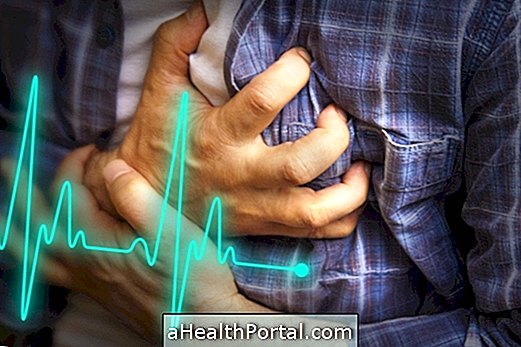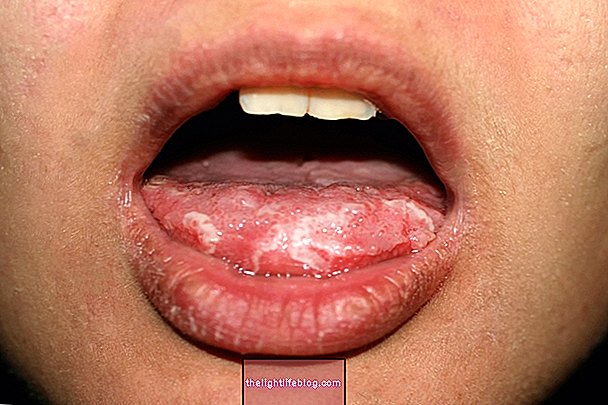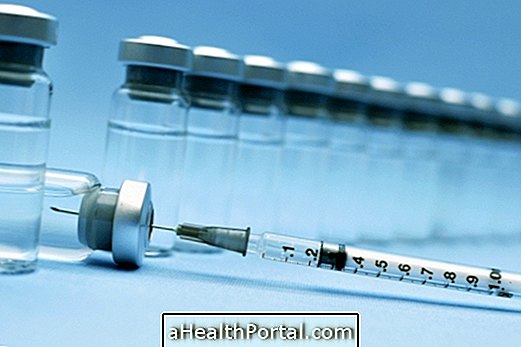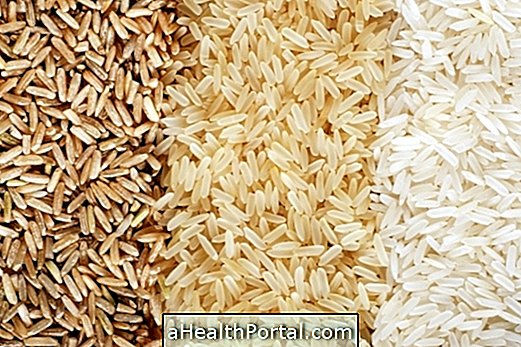Anyone between the ages of 16 and 69 who does not have health problems can donate blood, which can save many lives. However, there are some basic requirements for giving blood, which ensure the well-being of the donor and who receives the blood, such as:
- Weigh more than 50 kg;
- Be over 18 years old;
- Be healthy, and not have blood-borne diseases like Hepatitis, Aids, Malaria or Zika for example.
Donating blood is a safe process, which ensures the donor's well-being and is a quick process that takes up to 30 minutes. The blood of the donor can be used in different ways depending on the needs of the recipient, not only the donated blood can be used, but also its plasma, its platelets or even hemoglobin depending on the needs of those who need it.
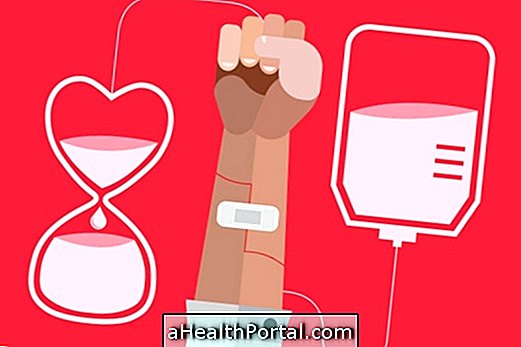
When I can not donate blood
Despite the basic requirements to donate blood, there are some diseases or situations that prevent the donation of blood during a period that can go from 12 hours to 12 months, and these include:
| Situation that prevents donation | Time when you can not donate blood |
| Alcohol Ingestion | 12 hours |
| Common cold, flu, diarrhea, fever or vomiting | 7 days after disappearance of symptoms |
| Tooth extraction | 7 days |
| Normal birth | 3 to 6 months |
| Cesarean delivery | 6 months |
| Endoscopy, colonoscopy, or rhinoscopy | Between 4 and 6 months, depending on the exam |
| Pregnancy | Throughout the gestation period |
| Abortion | 6 months |
| Breast-feeding | 12 months after childbirth |
| Performing a tattoo, putting on some piercing or performing some acupuncture treatment or mesotherapy | Four months |
| Vaccines | 1 month |
| Risk situations for sexually transmitted diseases such as multiple sexual partners or drug use for example | 12 months |
| Pulmonary Tuberculosis | 5 years |
|
Change of sexual partner | 6 months |
| Travel outside the country | It varies from 1 to 12 months - Depends on the country you traveled to, talk to your doctor or nurse |
| Weight loss for health reasons or for unknown reasons | 3 months |
| Cold sores, genital or ocular | While you have symptoms |
In addition, if you have ever used drugs, have undergone corneal, tissue or organ transplants, had any growth hormone treatment or any surgery, or if you have had any blood transfusions since 1980, you can not donate blood either. your doctor or nurse about it.
After the indicated rest periods, you can donate blood again, and it is only necessary that you go to a blood donation center in your city. In addition, women can donate blood every 4 months and men can donate every 3 months.
How to Prepare to Donate Blood
Before donating blood, there are some very important precautions that avoid fatigue and weakness, such as:
- Maintain hydration: Drink plenty of water, coconut water, tea or fruit juices the day before and the day you will donate blood;
- Avoid sun tanning: it may increase the risk of dehydration.
- Eating before giving blood: eating before giving blood is very important, being important to eat breakfast 1 hour before going to give blood. Learn what you can eat to have a rich and nutritious breakfast by clicking here.

What to do to recover faster
After giving blood, it is important that some care is taken to avoid discomfort and fainting, and should therefore:
- Continue with hydration by continuing to drink plenty of water, coconut water, tea or fruit juice; See what foods can eat to ensure that you drink enough water in How to drink 2 liters of water per day.
- Eat a lancinho so you do not feel bad, always make sure you drink a fruit juice, have a coffee or eat a sandwich after giving blood to recharge the energy;
- Avoid spending too much time in the sun, because after donating blood the risk of heat stroke or dehydration is greater;
- Avoid exertion in the first 12 hours and do not exercise during the next 24 hours;
- If you are a smoker, wait at least 2 hours after donation to be able to smoke;
- Avoid drinking alcohol in the next 12 hours.
- After giving blood, press a cotton ball at the site of the bite for 10 minutes and keep the dressing done by the nurse for at least 4 hours.

In addition, when donating blood, it is important that you bring a companion and then take you home, as you should avoid driving because of the excessive tiredness that is normal to feel.
